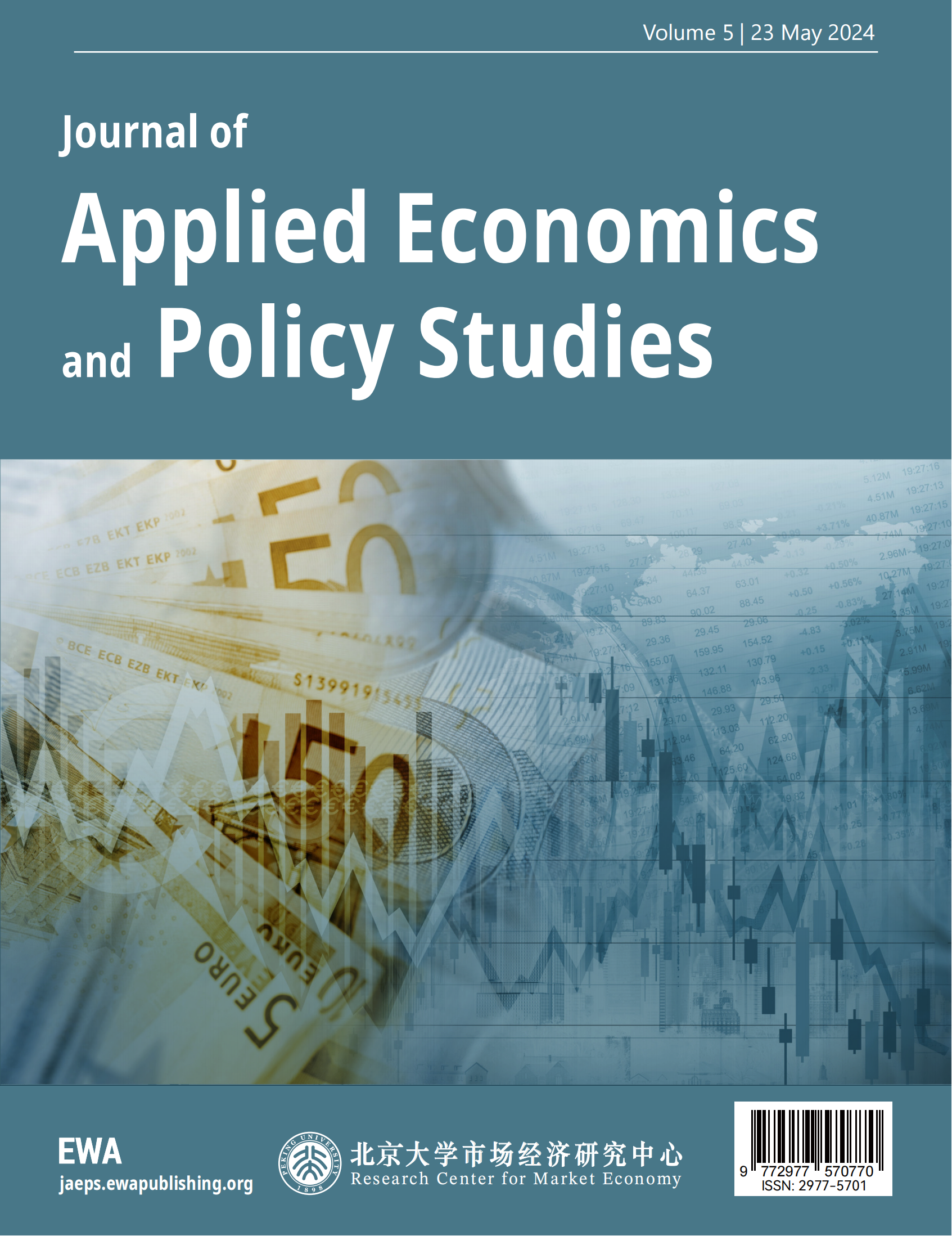1. Introduction
With the rapid development of information technology, digital media is playing an increasingly vital role in the development of the tourism industry. Through various communication channels such as television, the internet, and mobile media, tourist destinations, unique products, and cultural charms are widely disseminated, attracting a large number of tourists and driving the rapid growth of the tourism industry. In 2023, we witnessed the emergence of phenomena like the barbecue culture in Zibo, Shandong, and the Harbin Ice and Snow World. There is still significant room for development in the “Cultural and Tourism New Media” marketing model, finding marketing strategies to attract more tourists, which holds great value for the sustained development of the tourism industry. As a generation that has grown up in the development of the internet, Generation Z relies heavily on network media as their primary source of information. The inclusivity, diversity, and innovativeness inherent in Generation Z profoundly influence the changes in new media communication methods. Additionally, due to their significant consumer contribution, the voices and demands of Generation Z cannot be overlooked.
In this context, this study conducted surveys on 700 consumers through methods such as questionnaire surveys to analyze the willingness of Generation Z consumer groups to accept the “Cultural and Tourism New Media” tourism marketing model and explore the factors influencing acceptance. Based on the SOR theory (Stimulus-Organism-Response), marketing theories such as KOC, UGC, and KOL, as well as the analysis results of web crawler data, this study proposed variables and hypotheses, constructed a structural equation model, and further provided suggestions for the development of the “Cultural and Tourism New Media” marketing model and the cultural tourism industry. Thus, this study aims to further promote the healthy and sustainable development of the tourism industry.
2. Literature Review
2.1. Definition of “Cultural and Tourism New Media”
The rapid development of short videos has provided new opportunities for the development of local cultural and tourism industries. Since 2020, various directors of cultural and tourism bureaus have promoted the “emergence” of short videos, revealing the outbreak of the “Cultural and Tourism New Media” promotional model.
Regarding the name and definition of the “Cultural and Tourism New Media” marketing model, different studies have varied according to different needs. Zhang Guangyu et al. believe that the “Cultural and Tourism New Media” marketing model originated from directors of cultural and tourism bureaus personally joining in, combining urban characteristics, and filming videos featuring horse riding, cosplay, sword dancing, etc. Under the viral effect of short videos, this formed the marketing characteristics of cultural and tourism new media [1]. Yao Jingfeng et al. proposed the concept of the “Cultural and Tourism New Media” marketing model, based on the perspective of modern cultural and tourism IP development and operation, drawing on systems theory and integrated marketing thinking, and utilizing various new media platforms to create distinctive modern cultural and tourism IPs [2].
In order to refine the research subject, this study adopts the concept of “Cultural and Tourism New Media,” defined as: an internet marketing method exemplified by the barbecue culture in Zibo, Shandong, and the Harbin Ice and Snow World, which combines local cultural elements with the innovation and interactivity of digital media, and is a marketing model jointly operated by KOC + UGC + government and other entities. The “new media” referred to in this study refers to online platforms such as Douyin and Weibo, which possess timeliness and interactivity.
2.2. Review of Related Literature on “Cultural and Tourism New Media”
2.2.1. Review of Domestic Literature
Research on “Cultural and Tourism New Media” in China, according to the research subjects, mainly falls into the following two categories:
The first is research on the promotion of cultural and tourism industries through new media platforms and models. This research mainly focuses on the fields of communication and marketing. There are studies at the macro level analyzing the promotion of cultural and tourism industries through new media platforms and models, such as Ye Yong’s analysis of the assistance of short videos in local cultural and tourism promotion [3]. There are also studies focusing on specific case studies of promotional models, such as Zhang Guangyu et al.’s analysis of the marketing entities, strategies, content, and effects behind “Zibo barbecue” [1]; Yao Jingfeng et al. reviewed the operation strategies of cultural and tourism IPs in the Chengdu-Chongqing region [2].
The second aspect involves the study of consumer groups, focusing primarily on the factors or mechanisms influencing tourist intentions, decision-making, and consumption in the context of cultural and tourism new media models. Some domestic scholars have empirically analyzed the impact of various variables, such as impulsive travel intentions, characteristics of internet celebrity economies, and features of new media promotion, on consumer tourist intentions, behaviors, and consumption behaviors.
2.2.2. Review of Foreign Literature
As the “Cultural and Tourism New Media” marketing model discussed in this study originated from specific national circumstances in China, when we turn our attention to foreign literature, we find relatively few studies on similar scenarios regarding the “Cultural and Tourism New Media” marketing model. After reviewing, we found studies on the impact of the rise of new media technologies on the construction of tourism city images and tourist consumer behavior. Zegeng Chen et al. analyzed the marketing strategies for intangible cultural heritage tourism under the background of new media [4]; Liu Claire explored the influence of perceived and searched social media-related information on purchase intentions [5].
2.3. Overview of SOR Theory
In 1929, Woodworth first proposed the “Stimulus-Response” (SOR) theory, suggesting that individuals produce responses after being stimulated. In the 1940s, Clark L. Hull further developed the SOR theory and introduced the motivation theory. Hull believed that the needs generated by organisms produce an internal drive, suggesting that individual behavior is driven by internal forces. Mehrabian & Russell, from the perspective of environmental psychology, introduced internal cognition and emotional activities, i.e., the “Organism” factor, suggesting that individuals are easily influenced by the internal psychological states of the organism when receiving external environmental stimuli, ultimately affecting behavior. This enhanced the “Stimulus-Organism-Response” theory, abbreviated as SOR theory. In this theory, stimuli generate responses through the processing of the organism. Responses depend not only on the nature of the stimuli but also on internal states, individual characteristics, and environmental conditions of the organism.

Figure 1. SOR Theory
2.4. Specific Application of SOR Theory
The SOR model can be used to explain individual behavior and responses in different contexts and has wide applications in marketing, psychology, sociology, education, and other fields. For example, Pang Guoqing et al. used this theory to explore the influence of online loans on consumer purchase intentions; Guo Jing studied the impact of virtual tourism experiences on intentions for physical tourism based on the SOR theory; Wang Shengyuan et al. investigated the effect of short cultural and tourism videos on users’ impulsive travel intentions based on the SOR theory.
2.5. Proposal of Variables
This study, based on the SOR theory, explores the mechanism of consumer responses to the acceptance of the “Cultural and Tourism New Media” marketing model. The stimulus variables in the study are “local suitability,” “acceptance of marketing methods,” and “negative media marketing image.”
2.5.1. Acceptance of Marketing Methods
Acceptance of marketing methods refers to the degree to which consumers accept various new media promotional methods used by the cultural and tourism industry. These promotional methods include linkage promotion with popular film and television works, distinctive promotional methods with cultural and tourism bureaus as the main promoters (such as the “My Surname is Harbin” promotional video released by the Harbin Cultural and Tourism Bureau), celebrity endorsements, influencer promotions, and emotionally resonant promotions (such as the Harbin promotional slogan: “She has just been forgotten for too long”). According to the SOR theory, consumers, upon receiving these promotional methods, will form certain perceptions, which in turn influence their behaviors or psychological responses. Therefore, this study hypothesizes:
H1: Acceptance of marketing methods has a positive impact on consumers’ perception and trust.
2.5.2. Negative Media Marketing Image
Negative media marketing image refers to the adverse image perceived by the public when the cultural and tourism industry uses certain new media methods for marketing. Due to the qualitative descriptions of negative evaluations in the text analysis of web crawler-derived online comments, as well as the comprehensive results of the first two surveys, this variable is often described qualitatively as negative. Therefore, we use consumer-proposed terms such as “vulgar marketing,” “content homogeneity,” and “causing aesthetic fatigue” to describe this variable, and propose the following hypothesis:
H2: Negative media marketing image has a negative impact on consumers’ perception and trust.
2.5.3. Local Suitability
Local suitability refers to whether the conditions of the city being promoted are suitable for tourism. This study hypothesizes:
H3: Local suitability has a positive impact on consumers’ perception and trust.
2.5.4. Consumer Perception and Trust
Consumer perception and trust, as organism variables in this study applying the SOR theory, also serve as intermediate variables in the structural equation model created for this study. In the SOR theory, organism factors mainly refer to the feelings and experiences of the stimulated person’s inner state. In this study, it refers to consumers’ perception and trust, including whether they trust the promotional content, their sense of participation and interaction in the “Cultural and Tourism New Media” marketing model, and their interest in the promotional content. This study hypothesizes:
H4: Consumer perception and trust have a positive impact on the willingness to accept the “Cultural and Tourism New Media” marketing model.
2.5.5. Consumer Activity
Table 1. Display of Questionnaire Section
Latent variables |
Variable names |
Item options |
Consumer engagement |
A1 |
I often browse short videos and articles related to cultural and tourism promotion on online platforms. |
A2 |
I actively participate in discussions on topics related to cultural and tourism promotion on online platforms. |
|
A3 |
Short videos and articles related to cultural and tourism promotion are important channels for me to obtain travel information |
|
Acceptance of promotional methods |
B1 |
In the marketing model of ‘cultural and tourism new media’, associating cities with popular film and television works will attract me to travel. |
B2 |
In the marketing model of ‘cultural and tourism new media’, unique promotional methods by local cultural and tourism bureaus will attract me to travel. |
|
B3 |
In the marketing model of ‘cultural and tourism new media’, the participation of entertainment celebrities in promotion will attract me to travel. |
|
B4 |
In the marketing model of ‘cultural and tourism new media’, recommendations from internet opinion leaders (such as Weibo celebrities, highly influential bloggers) will attract me to travel. |
|
B5 |
In the marketing model of ‘cultural and tourism new media’, seeking emotional resonance in marketing methods will attract me to travel. |
|
Suitability for local conditions |
C1 |
Infrastructure construction |
C2 |
Government regulatory efforts |
|
C3 |
Natural scenery |
|
C4 |
Distinctive culture |
|
C5 |
Local cuisine |
|
C6 |
Price level |
|
C7 |
Visitor traffic |
|
C8 |
Convenience of transportation |
|
C9 |
Weather conditions |
|
Negative degree of media marketing image |
D1 |
I believe that the marketing model of ‘cultural and tourism new media’ suffers from the problem of vulgar marketing and pandering to the masses. |
D2 |
I believe that the marketing model of ‘cultural and tourism new media’ faces the issue of homogenization. |
|
D3 |
I believe that the marketing model of ‘cultural and tourism new media’ leads to aesthetic fatigue. |
|
Consumer perception and trust |
E1 |
The marketing model of ‘cultural and tourism new media’ can help me discover niche ‘hidden gem’ attractions. |
E2 |
The marketing model of ‘cultural and tourism new media’ makes me feel interactive and engaged. |
|
E3 |
The marketing model of ‘cultural and tourism new media’ helps me to understand the local situation promptly and efficiently. |
|
E4 |
I believe that the content propagated by the ‘cultural and tourism new media’ model is relatively genuine and reliable. |
|
E5 |
The content promoted by the marketing model of ‘cultural and tourism new media’ interests me. |
|
E6 |
I believe that the cities recommended by the ‘cultural and tourism new media’ model are worth visiting. |
|
Willingness to accept marketing models |
F1 |
I am willing to watch cultural and tourism promotional videos and articles online. |
F2 |
I hope that my hometown also adopts the ‘cultural and tourism new media’ promotional model. |
|
F3 |
In the future, I will consider the content promoted by ‘cultural and tourism new media’ as a travel reference and use it for the long term. |
|
F4 |
I will recommend the ‘cultural and tourism new media’ model of travel to my family and friends. |
|
F5 |
I am willing to travel to popular attractions recommended by ‘cultural and tourism new media’. |
This study believes that besides the reaction of organisms to external stimuli under the SOR theory, some individual traits of individuals will also affect their willingness to accept the “Cultural and Tourism New Media” marketing model. People who are more active on the internet are more familiar with internet culture and are more likely to receive related cultural and tourism promotional content. This study hypothesizes:
H5: Consumer activity has a positive impact on the willingness to accept the “Cultural and Tourism New Media” marketing model.
The hypotheses are summarized as follows:
H1: Acceptance of marketing methods has a positive impact on consumers’ perception and trust.
H2: Local suitability has a positive impact on consumers’ perception and trust.
H3: Negative media marketing image has a negative impact on consumers’ perception and trust.
H4: Consumer perception and trust have a positive impact on the willingness to accept the “Cultural and Tourism New Media” marketing model.
H5: Consumer activity has a positive impact on the willingness to accept the “Cultural and Tourism New Media” marketing model.
3. Research Sample and Variables
3.1. Research Sample
This paper adopts the method of questionnaire survey to obtain data. The questionnaire consists of four parts in total. The first part collects basic information of the respondents, including gender, age, education level, occupation, monthly disposable income, etc. The second part measures consumer activity, local suitability, acceptance of marketing methods, negative media marketing image, and consumer perception and trust using the Likert five-point scale. The third part measures consumers’ willingness to accept the “Cultural and Tourism New Media” marketing model using the Likert five-point scale. The fourth part sets open-ended questions to investigate respondents’ opinions and suggestions on the “Cultural and Tourism New Media” marketing model and the development of the cultural and tourism industry. A total of 700 valid data were anonymously collected through multiple channels such as WeChat and Xiaohongshu online social platforms. SPSS 26.0 and AMOS 23.0 were used for reliability and validity analysis, correlation testing, and structural equation model analysis of the collected data. Based on snownlp text sentiment analysis and the LDA model, consumers’ suggestions for the “Cultural and Tourism New Media” marketing model were analyzed.
3.2. Target Population
Generation Z refers to people born between 1995 and 2010, who have grown up as “digital natives” alongside the development of the Internet. This group tends to acquire information through the internet. According to data from the National Bureau of Statistics (2018), there are 260 million people born between 1995 and 2010 in China. This group is extremely large in number and is characterized by inclusiveness, diversity, and innovation, profoundly influencing changes in new media communication methods. Additionally, due to their strong consumption power, the voices and demands of Generation Z cannot be ignored.
Therefore, the target population of this study is Generation Z.
4. Data Verification and Results Analysis
4.1. Reliability Test
In order to verify whether the questionnaire meets reliability standards, i.e., whether the questionnaire results are repeatable, a reliability analysis of the questionnaire results is conducted to demonstrate the reliability of the questionnaire. The results of the validity test calculated using SPSS software are as follows:
From the table above, it can be seen that the Cronbach’s α coefficient values corresponding to the six dimensions designed in this paper are all greater than 0.7, indicating good internal consistency of each dimension of the questionnaire and strong reliability of the questionnaire results. Therefore, further analysis can be conducted.
As shown in the table below, the “Item Deleted α coefficient” for all items is less than the α coefficient value of the dimension, indicating that no items need to be deleted; the “CITC value” is used to measure the correlation between an item and other items on the scale, and all CITC values for items are greater than 0.4, indicating that there is a certain level of correlation between the analyzed items and the overall scale.
Table 2. Cronbach Reliability Analysis
Name |
Corrected Item-Total Correlation (CITC) |
Item Deleted α Coefficient |
Cronbach’s α Coefficient |
||
Consumer engagement |
A1 |
0.77 |
0.696 |
0.832 |
|
A2 |
0.664 |
0.799 |
|||
A3 |
0.673 |
0.788 |
|||
Acceptance of promotional methods |
B1 |
0.816 |
0.815 |
0.872 |
|
B2 |
0.665 |
0.853 |
|||
B3 |
0.657 |
0.855 |
|||
B4 |
0.691 |
0.847 |
|||
B5 |
0.678 |
0.85 |
|||
Suitability for local conditions |
C1 |
0.854 |
0.896 |
0.917 |
|
C2 |
0.71 |
0.907 |
|||
C3 |
0.687 |
0.908 |
|||
C4 |
0.671 |
0.91 |
|||
C5 |
0.693 |
0.908 |
|||
C6 |
0.69 |
0.908 |
|||
C7 |
0.675 |
0.909 |
|||
C8 |
0.689 |
0.908 |
|||
C9 |
0.69 |
0.908 |
|||
Negative degree of media marketing image |
D1 |
0.758 |
0.697 |
0.829 |
|
D2 |
0.673 |
0.778 |
|||
D3 |
0.654 |
0.797 |
|||
Consumer perception and trust |
E1 |
0.843 |
0.837 |
0.884 |
|
E2 |
0.659 |
0.869 |
|||
E3 |
0.667 |
0.868 |
|||
E4 |
0.675 |
0.867 |
|||
E5 |
0.671 |
0.868 |
|||
E6 |
0.663 |
0.869 |
|||
Willingness to accept marketing models |
F1 |
0.85 |
0.787 |
0.863 |
|
F2 |
0.649 |
0.842 |
|||
F3 |
0.632 |
0.846 |
|||
F4 |
0.621 |
0.849 |
|||
F5 |
0.68 |
0.835 |
|||
4.2. Validity Test
Table 3. KMO and Bartlett Test
KMO value |
0.912 |
|
Bartlett’s test of sphericity |
Approximate chi-square |
11736.118 |
df |
465 |
|
p-value |
0.000 |
|
We conducted a validity test to analyze whether the designed questionnaire is closely related to the research objectives, i.e., whether the questionnaire items can effectively measure the aspects to be studied. The results of the questionnaire validity test are as shown above.
This study uses factor analysis for information condensation research. First, we analyzed whether the research data are suitable for factor analysis. As shown in the table above, the KMO is 0.912, greater than 0.6, meeting the prerequisite for factor analysis, indicating that the data can be used for factor analysis research. Additionally, the data passed the Bartlett’s sphericity test (p < 0.05), indicating that the research data are suitable for factor analysis. The questionnaire design of this study is well-structured.
4.3. Correlation Analysis
To enhance the robustness of the subsequent model, we examined the correlation between specific observed variables under each variable. This study uses Pearson correlation coefficient. We calculated the correlation and significance using SPSS, and we determine that two variables are positively correlated only when the correlation coefficient is greater than 0 and the p-value is less than 0.05. We also judge the strength of the correlation based on the following range of values:
Table 4. Corresponding Table of Correlation Coefficients
Coefficient |
Correlation degree |
0.0-0.2 |
Extremely weak or no correlation |
0.2-0.4 |
Weak correlation |
0.4-0.6 |
Moderate correlation |
0.6-0.8 |
Strong correlation |
0.8-1.0 |
Very strong correlation |
Table 5. Pearson Correlation - Standard Format
Consumer engagement |
Acceptance of promotional methods |
Suitability for local conditions |
Negative degree of media marketing image |
Consumer perception and trust |
Willingness to accept marketing models |
|
Consumer engagement |
1 |
|||||
Acceptance of promotional methods |
0.272** |
1 |
||||
Suitability for local conditions |
0.247** |
0.310** |
1 |
|||
Negative degree of media marketing image |
0.294** |
0.217** |
0.250** |
1 |
||
Consumer perception and trust |
0.285** |
0.317** |
0.302** |
0.218** |
1 |
|
Willingness to accept marketing models |
0.389** |
0.353** |
0.387** |
0.354** |
0.416** |
1 |
* p<0.05 ** p<0.01 |
||||||
Based on the table above, utilizing correlation analysis to study the relationship between consumer activity and willingness to accept marketing modes, using the Pearson correlation coefficient to indicate the strength of the relationship. The observed variables under the latent variable exhibit good consistency.
4.4. Construction of Structural Equation Model
This study selected five dependent variables: consumer activity, acceptance of promotional methods, suitability of local conditions, negativity of media marketing image, and consumer perception and trust. The influence of these variables on the willingness to accept the “cultural and tourism new media” marketing mode was studied through a structural equation model.
The structural equation model constructed in this study is shown in the diagram below:
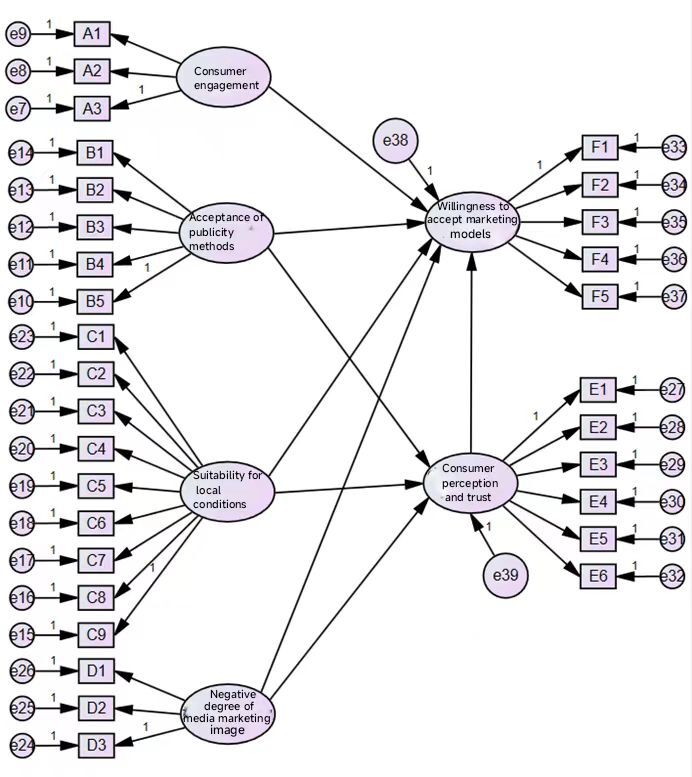
Figure 2. Structural Equation Model Diagram
The fitting results of the model in this study are shown in the table below:
Table 6. Formal Survey Model Fitting Results
CMIN |
f |
NFI |
IFI |
TLI |
CFI |
GFI |
RMSEA |
213.713 |
94 |
0.909 |
0.942 |
0.937 |
0.942 |
0.898 |
0.047 |
Recommended value |
>0.9 |
>0.9 |
>0.9 |
>0.9 |
>0.9 |
<0.05 |
|
Fit result |
Acceptable |
Good |
Good |
Good |
Acceptable |
Good |
Based on the table above, according to the evaluation criteria of model fitting indicators, in the confirmatory factor analysis model of this study, most of the model fit indicators such as CMIN/DF, NFI, IFI, TLI, CFI, GFI, RMSEA, CFI, etc., meet the standard, indicating that the model fit is very good.
4.5. Hypothesis Testing of Causal Relationships
Table 7. Path Analysis Results
Path |
Standard Path Coefficient |
Non-standard Path Coefficient |
Standard Error |
Critical Value |
P |
||
Consumer perception and trust |
← |
Acceptance of promotional methods |
0.227 |
0.328 |
0.059 |
5.517 |
*** |
Consumer perception and trust |
← |
Suitability for local conditions |
0.199 |
0.301 |
0.061 |
4.955 |
*** |
Consumer perception and trust |
← |
Negative degree of media marketing image |
-0.12 |
-0.18 |
0.062 |
-2.916 |
0.004 |
Willingness to accept marketing models |
← |
Consumer engagement |
0.195 |
0.28 |
0.055 |
5.078 |
*** |
Willingness to accept marketing models |
← |
Consumer perception and trust |
0.244 |
0.245 |
0.04 |
6.087 |
*** |
Willingness to accept marketing models |
← |
Acceptance of promotional methods |
0.166 |
0.241 |
0.057 |
4.258 |
*** |
Willingness to accept marketing models |
← |
Suitability for local conditions |
0.201 |
0.305 |
0.058 |
5.249 |
*** |
Willingness to accept marketing models |
← |
Negative degree of media marketing image |
0.216 |
-0.326 |
0.059 |
-5.517 |
*** |
Note: Significance level of p < 0.001 indicated by ***
From the table above, it can be seen that there are clear causal relationships between promotional methods, local conditions, negative effects of media marketing, consumer perception and trust, and willingness to accept the “cultural and tourism new media” marketing mode, therefore hypotheses H1, H2, H3, H4, and H5 are all supported.
4.6. Mediation Analysis
This study conducted mediation analysis using the bootstrap method to calculate the 95% confidence interval of a*b, to determine the significance of the product term (whether the confidence interval includes 0), thereby judging the presence of mediation effects.
Table 8. Mediation Analysis Results
Pathway |
Parameter |
Effect value |
Lower |
Upper |
P |
Acceptance of promotional methods ⇒ Consumer perception and trust ⇒ Willingness to accept marketing models |
Direct effect 1 |
0.166 |
0.084 |
0.246 |
0.00 |
Indirect effect 1 |
0.055 |
0.031 |
0.089 |
0.00 |
|
Total effect 1 |
0.221 |
0.141 |
0.3 |
0.00 |
|
Suitability for local ⇒ Consumer perception and trust ⇒Willingness to accept marketing models |
Direct effect 2 |
0.201 |
0.12 |
0.282 |
0.00 |
Indirect effect 2 |
0.049 |
0.026 |
0.081 |
0.00 |
|
Total effect 2 |
0.25 |
0.168 |
0.329 |
0.00 |
|
Negative degree of media marketing image ⇒ Consumer perception and trust ⇒ Willingness to accept marketing models |
Direct effect 3 |
-0.216 |
0.301 |
0.134 |
0.00 |
Indirect effect 3 |
-0.029 |
0.056 |
0.009 |
0.003 |
|
Total effect 3 |
-0.245 |
0.332 |
0.162 |
0.00 |
The results of the mediation analysis are shown in the table above. It can be seen that the confidence intervals for all paths do not include 0, indicating that all paths have mediation effects, and the mediation effect of consumer perception and trust is established.
In the previous statistical analysis, we analyzed the willingness of Generation Z to accept the “cultural and tourism new media” mode, but did not examine whether there are significant differences in acceptance among different segments of Generation Z. Therefore, in this section, we describe the personal characteristics of respondents using descriptive statistics and use independent sample t-tests and one-way analysis of variance (ANOVA) to explore the differences in Generation Z’s willingness to accept the “cultural and tourism new media” marketing mode.
4.7. Independent Sample t-test
In this study, the sample was divided into two independent groups according to gender, and independent sample t-tests were used to investigate the differences in acceptance of marketing modes among different genders of Generation Z.
Table 9. T-test Analysis Results |
||||
Your gender (mean ± standard deviation) |
t |
p |
||
Male (n=332) |
Female (n=368) |
|||
Willingness to accept marketing models |
2.09±0.4 |
3.65±0.47 |
42.862 |
0.000** |
* p<0.05 ** p<0.01 |
||||
From the table above, it can be seen that the samples of different genders all show significance (p < 0.05) in willingness to accept marketing modes, indicating differences in willingness to accept marketing modes among different genders. Specifically:
- Gender shows significance at the 0.01 level (t = -42.862, p = 0.000). Upon detailed comparison, it is evident that the average value for males (2.09) is significantly lower than that for females (3.65), indicating that females have a stronger willingness to accept the “cultural and tourism new media” marketing mode.
4.8. One-way Analysis of Variance (ANOVA)
In this study, the sample was divided into four independent groups according to age, and one-way ANOVA was used to investigate the differences in Generation Z’s willingness to accept the marketing mode among different age groups.
Table 10. Analysis of Variance Results |
||||||
Your age (mean ± standard deviation) |
F |
p |
||||
Under 18 years old (n=205) |
18-25 years old (n=181) |
26-30 years old (n=225) |
31-35 years old (n=89) |
|||
Willingness to accept marketing models |
3.63±0.46 |
3.52±0.66 |
2.07±0.50 |
2.13±0.47 |
453.527 |
0.000** |
* p<0.05 ** p<0.01 |
||||||
From the table above, it can be seen that samples of different ages all show significance (p < 0.05) in willingness to accept marketing modes, indicating differences in willingness to accept marketing modes among different age groups. Specifically:
Age shows significance at the 0.01 level (F = 453.527, p = 0.000). Upon detailed comparison, the groups with significantly different average scores are as follows: “Below 18 years old > 26-30 years old; Below 18 years old > 31-35 years old; 18-25 years old > 26-30 years old; 18-25 years old > 31-35 years old.” This suggests that Generation Z individuals have a stronger willingness to accept the “cultural and tourism new media” marketing mode.
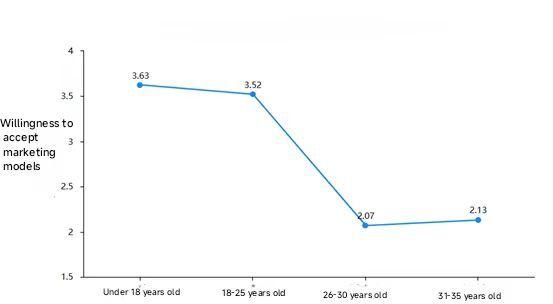
Figure 3. Contrasting Variance of Age and Acceptance of Marketing Modes
The sample was divided into five independent groups according to monthly disposable income, and one-way analysis of variance was used to investigate the differences in acceptance of marketing modes among different income groups. The results of the analysis of variance are shown in the table below:
Table 11. Analysis of Variance Results |
|||||||
Your monthly disposable income (mean ± standard deviation) |
F |
p |
|||||
Below 1000 yuan (n=72) |
1000-2000 yuan (n=260) |
2000-5000 yuan (n=175) |
5000-10000 yuan (n=117) |
Above 10000 yuan (n=76) |
|||
Willingness to accept marketing models |
2.06±0.49 |
2.10±0.49 |
3.62±0.47 |
3.65±0.46 |
3.70±0.49 |
459.080 |
0.000** |
* p<0.05 ** p<0.01 |
|||||||
From the table above, it can be seen that samples of different monthly disposable incomes all show significance (p < 0.05) in willingness to accept marketing modes, indicating differences in willingness to accept marketing modes among different income groups. Specifically:
Monthly disposable income shows significance at the 0.01 level (F = 459.080, p = 0.000). Upon detailed comparison, the groups with significantly different average scores are as follows: “2000-5000 yuan > Less than 1000 yuan; 5000-10000 yuan > Less than 1000 yuan; Over 10,000 yuan > Less than 1000 yuan; 2000-5000 yuan > 1000-2000 yuan; 5000-10000 yuan > 1000-2000 yuan; Over 10,000 yuan > 1000-2000 yuan.” This indicates that the higher the income, the stronger the willingness to accept the “cultural and tourism new media” marketing mode. The results of the variance analysis comparison are shown in Figure 4.
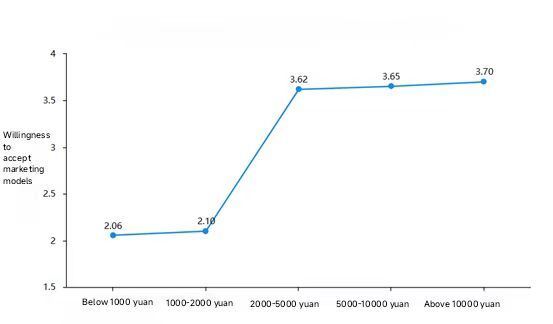
Figure 4. Variance Comparison of Income and Acceptance of Marketing Modes
4.9. Snownlp Text Sentiment Analysis
Snownlp is a Python library for Chinese natural language processing, used for tasks such as Chinese word segmentation, sentiment analysis, part-of-speech tagging, etc. Text sentiment analysis involves analyzing and processing text content with subjective emotional expressions, extracting emotional features, and then summarizing and classifying them. The sentiment score ranges from 0 to 1, with scores closer to 1 indicating more positive sentiment and scores closer to 0 indicating more negative sentiment. Some sample sentiment scores are as follows:
Table 12. Illustration of Sentiment Scores for Open-ended Question Responses
Response content |
Sentiment Score |
Integrating cultural connotations with traditional culture can rely on the development of tourism through excellent traditional culture. |
0.99998837 |
Marketing video content should be more comprehensive to highlight the characteristics of tourist attractions. |
0.924221474 |
Shape a more distinctive and positive cultural and tourism new media image. |
0.819538603 |
Appropriate use of celebrity effect can be combined with film and television. |
0.797772497 |
With fewer types, we should achieve personalized and innovative promotion in each region. |
0.686414306 |
Avoid homogenization and avoid overwhelming propaganda, as extreme measures can backfire. |
0.560912458 |
Innovation is needed, avoid being stereotyped. |
0.453897244 |
Carefully discern the quality of marketing products and strengthen multi-party supervision from the market and society. |
0.32274522 |
Insufficient publicity effort may miss out on hot topics. |
0.149237022 |
Using 0.5 as the threshold, scores greater than 0.5 are classified as “positive,” while scores less than 0.5 are classified as “negative.” The proportion of positive and negative comments is calculated, and the results are shown below:
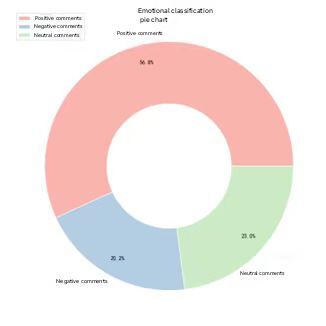
Figure 5. Emotional Score Circular Chart for Open-ended Question Responses
The text data is segmented into words or phrases. Firstly, a stop word dictionary is obtained, which contains Chinese connector words without specific semantics and some punctuation marks. These words are removed to retain meaningful word groups. After segmenting the “positive” and “negative” parts separately, high-frequency words and their frequencies are extracted, and a word cloud is generated. Some examples of high-frequency words are shown below:
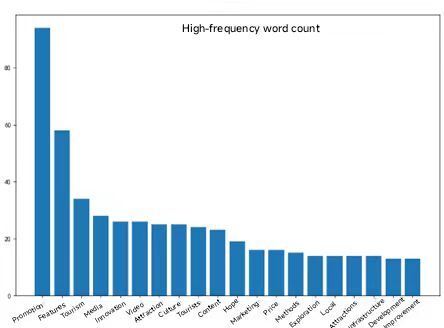
Figure 6. High-frequency Words in Positive Responses
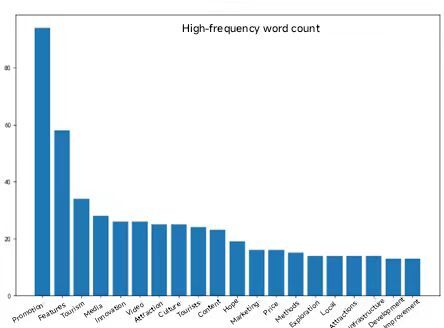
Figure 7. High-frequency Words in Negative Responses
The word cloud statistical diagrams generated by the extractor are as follows:
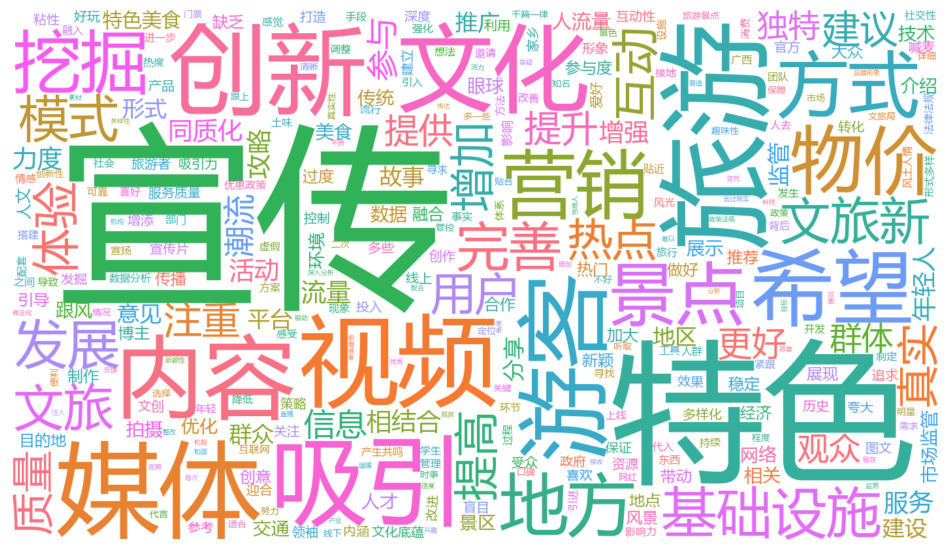
Figure 8. Word Cloud Statistical Diagram for Positive Responses
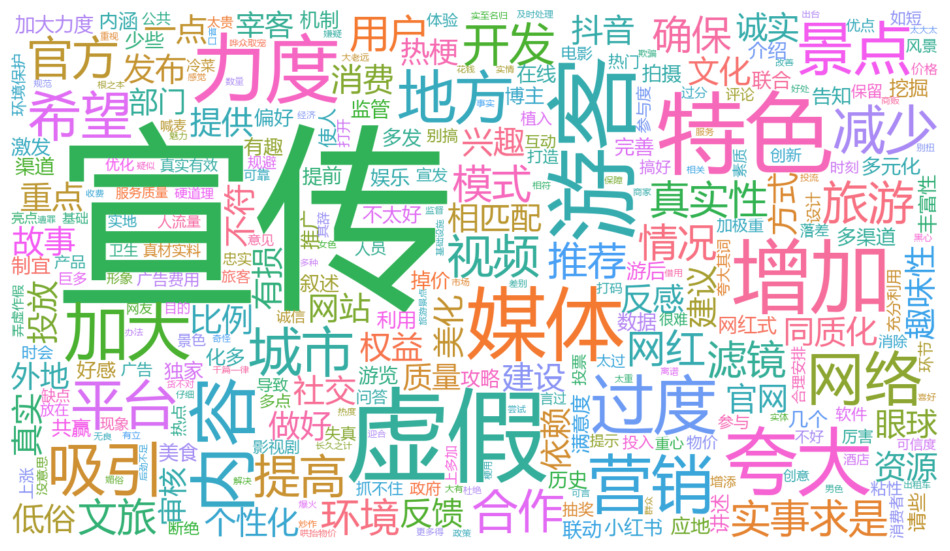
Figure 9. Word Cloud Statistical Diagram for Negative Responses
In this study, we synthesized effective information to construct word clouds, where the font size represents the frequency of occurrence of each term. In the word cloud representing positive sentiments, terms like “宣传” “媒体” “创新” “文化” “特色” and “挖掘” are depicted in larger fonts. This reflects the inclination of some respondents towards being satisfied with the promotional aspects of the current cultural and tourism new media marketing methods. It also signifies the desire of some respondents for promotional entities to focus on exploring distinctive cultures and innovating promotional strategies. Conversely, in the word cloud representing negative sentiments, terms such as “宣传” “虚假” “过度” and “夸大” are depicted in larger fonts. This indicates the perception of some respondents regarding the existence of excessive and false promotional practices in cultural and tourism promotion.
4.10. LDA Model Analysis
The LDA model is used to predict the themes of a set of statements, dividing them into topics based on the distribution of words in statistical statements. It provides the probability distribution of each topic for each document and then classifies the text based on these topics.
In the LDA model, each word in each document is assumed to be chosen from a certain topic with a certain probability and then selects a word from that topic with another probability. The probability of generating each word in the document is calculated by the formula:
\( p(\frac{w_{i}}{d_{j}})=\sum_{s}p(\frac{w_{i}}{y=s})×p(y=\frac{s}{d_{j}}) \)
where \( w \) represents the word, \( d \) represents the document, and \( s \) represents the subject.
To enhance accuracy and scientificity, the text divided into positive and negative sentiments in the previous sentiment analysis is separately analyzed using the LDA model. This analysis aims to obtain a comprehensive understanding of respondents’ opinions and suggestions regarding the “cultural and tourism new media” mode.
After the LDA model analysis, the short-answer data is clustered to form three positive and three negative themes, with five most likely words generated for each theme:
Table 13. Positive Theme Analysis Table
Theme one |
Theme two |
Theme three |
Characteristics |
exploration |
prices |
Innovation |
media |
infrastructure |
Content |
attraction |
attractions |
Promotion |
authenticity |
visitor traffic |
Approach |
guide |
tourists |
Table 14. Negative Theme Analysis Table
Theme one |
Theme two |
Theme three |
Falsehood |
amusement |
development |
Excessive |
linkage |
increase |
Homogenization |
hot topic |
hope |
Vulgarity |
truthfulness |
ensure |
Dislike |
matching |
improvement |
Based on the extracted characteristic words of the positive aspects identified by respondents, it can be inferred that consumers approve of certain aspects of the “cultural and tourism new media” mode. The five characteristic words in Theme One mainly reflect respondents’ cognition and evaluation of local cultural and tourism publicity through new media. Respondents believe that the publicity content of “cultural and tourism new media” is creative and has distinctive features. Theme Two mainly reflects suggestions for the development of the “cultural and tourism new media” mode. Respondents believe that the advantages of “cultural and tourism new media” should be utilized to explore different local characteristics, and authentic content and reliable travel strategies should be emphasized. Theme Three reflects practical aspects of local prices, infrastructure, attractions, traffic flow, and tourism experiences when respondents actually travel.
Based on the extracted characteristic words of the negative aspects identified by respondents, it can be inferred that respondents believe there are still shortcomings in the “cultural and tourism new media” marketing mode. Theme One, with words like “falsehood,” “excessive,” and “vulgarity,” suggests that excessive use of the “cultural and tourism new media” mode and the lack of authenticity in promotional content significantly reduce consumers’ favorability toward this mode. Theme Two suggests that to enhance the attractiveness of the “cultural and tourism new media” mode, efforts should be made to ensure the entertainment, popularity, and authenticity of promotional content. Theme Three suggests that to ensure long-term consumer satisfaction and continued use of the “cultural and tourism new media” mode, the quality of tourist cities should be improved while safeguarding consumer interests.
5. Conclusion and Recommendations
This study, after designing survey questionnaires and collecting data, conducted analyses using SPSS 26.0 and AMOS 23.0 and found the following: (1) The publicity methods and local conditions have a significant positive impact on the willingness to accept the “cultural and tourism new media” marketing mode. (2) The negative media marketing image has a significant negative impact on the willingness to accept the “cultural and tourism new media” marketing mode. (3) Women and younger demographics have a relatively higher acceptance of the “cultural and tourism new media” marketing mode. (4) Groups with higher incomes have a relatively higher acceptance of the “cultural and tourism new media” marketing mode.
Based on the above conclusions, this paper proposes the following development recommendations for the “cultural and tourism new media” marketing mode:
First, in terms of publicity efforts, moderate publicity should be emphasized with a focus on authenticity. Ultimately, the reputation and attractiveness of a place depend on its substance: environmental governance, tourism environment, infrastructure, and more. Many people are attracted by the scenery presented in videos, but when they visit the actual sites, they find discrepancies, leading to a sense of disparity and distrust in such promotional methods. Therefore, in cultural and tourism publicity, moderate promotion should be adopted, avoiding exaggeration of the actual situation and focusing on authenticity.
Second, in terms of publicity methods, further innovation in promotion should be pursued. Collaborations with well-known brands, intellectual properties (IP), and TV dramas can be leveraged for promotion. Additionally, incorporating internet “hot phrases” into promotional language can facilitate viral promotion. For example, in December 2023, the popular TV drama “Blossoms Shanghai” attracted numerous tourists to visit landmarks such as the Peace Hotel and Huanghe Road in Shanghai; Harbin’s promotional videos using the format “My surname is Harbin” quickly became internet memes, spreading virally among young demographics and boosting the rapid rise of the local cultural and tourism industry.
Third, shaping a positive image of cultural and tourism new media marketing and enhancing the depth of promotion are recommended. In terms of promotional content, it should be more grounded and relatable, while also avoiding vulgarity and homogeneity, seeking emotional resonance with the audience. For instance, Harbin’s promotion using the slogan “She has been forgotten for too long” tapped into the melancholy atmosphere of the Northeast region, eliciting emotional resonance from tourists. Promotional content can be enhanced by delving deeper into local history and culture, focusing on storytelling rather than merely attracting attention, such as the “college students’ barbecue” story that propelled Zibo into the limelight.
Fourth, exploring local scenic spots and culture and launching simplified travel guides can help discover niche attractions. The homogenization of ancient towns and local snacks in many places can easily lead to tourist fatigue. After successful cultural and tourism promotion, Zibo launched a barbecue map and introduced attractions in other cities in Shandong Province. Simultaneously, Shandong’s characteristic snack, bean jelly, also received widespread attention. Cities can release easy-to-understand travel guides in their marketing efforts to explore local characteristics.
The following recommendations are proposed for the development of the “cultural and tourism new media” marketing mode:
(1) Pay Attention to Public Opinion and Provide One-Stop Service for Tourists:
When cultural and tourism promotion achieves success, both Zibo and Harbin quickly implemented supporting service measures, with government officials paying close attention to tourist feedback. Staff from the Harbin Cultural and Tourism Bureau collected tourist feedback on platforms like Xiaohongshu and live streams, leading to the establishment of luggage storage facilities and the installation of thick windproof curtains in malls based on tourist suggestions. Zibo’s government introduced measures such as dedicated barbecue trains, the construction of barbecue cities, additional bus routes, and volunteer station reception, all of which received high praise. Other tourist cities can learn from the practices of Zibo and Harbin, emphasizing public opinion, providing one-stop services, enduring the test of tourist volume, and creating a favorable market atmosphere.
(2) Strengthen Order Management and Improve Local Infrastructure Construction:
The questionnaire survey results of this study indicate that tourists are concerned about the infrastructure of cities. The completeness of infrastructure construction to some extent affects whether a city can accommodate the influx of tourists brought by the cultural and tourism industry. In 2021, the Zibo government proposed a three-year action plan for the construction of new infrastructure (2021-2023), which provided support for the booming cultural and tourism industry in Zibo in 2023. Respondents mentioned issues such as the need for improved signage near popular attractions and hotels, the rational density of public toilets at scenic spots, and the deployment of additional police forces at chaotic intersections.
(3) Control Prices within a Reasonable Range and Safeguard Market Price Order:
Respondents mentioned the existence of “sky-high hotel prices” and “price gouging” in tourist hotspot cities. In response, local governments should strengthen market supervision and safeguard market price order. For example, the Harbin Market Supervision Bureau adopted a dual approach of “guidance + constraint,” intensifying price inspections on one hand, and issuing a “Winter Tourism Market Price Behavior Reminder Warning” on the other, guiding and regulating pricing by operators.
(4) Implement Talent Introduction Policies to Promote Subsequent Urban Development:
In 2022, the Zibo government proposed the “50 Measures for Talent Gold Policy,” leveraging the massive influx of traffic brought by the cultural and tourism industry for publicity. In the first two months of 2024, the real estate market in Harbin rebounded, with the purchase of homes by out-of-town residents in Harbin increasing by 94% year-on-year. Governments can capitalize on the significant traffic generated by the cultural and tourism industry to implement talent introduction policies, ensuring steady and far-reaching urban development, transforming “internet-famous cities” into “long-lasting cities.”
Authors Contributions
Yingnan Xu, as the corresponding author and first author of this paper, was responsible for the research topic selection, hypothesis formulation, model construction, data collection, chart translation, investigation, conceptualization, visualization, manuscript writing, conclusion summarization, and recommendation proposal.
Xinting Yu and Jingtong Zeng, as joint second authors, made equal contributions: conceptualization, methodology, data collection, writing – original draft preparation, visualization, and investigation.
References
[1]. Zhang, G., & Li, Z. (2024). Zibo Barbecue “Going Viral”: How the Government Seizes the Era Transition of Cultural and Tourism New Media Marketing. Media Forum, 7(03), 52-55.
[2]. Yao, J., Yan, R., He, Y., Zan, J., Mu, L., & Xiao, Y. (2024). Research on the Operation Strategy of Cultural and Tourism IP in the Chengdu-Chongqing Double-City Circle from the Perspective of New Media. Journal of Sichuan Tourism College, 2024(01), 49-53.
[3]. Ye, Y., & Wu, Y. (2023). Characteristics, Effects, and Strategies of Short Video Assisting Local Cultural and Tourism Promotion. Journal of Chinese Broadcasting & Television, 2023(10), 129-133.
[4]. Chen, Z., & Fu, S. (2024). Research on the Evaluation of the Effect of Tourism Revitalization of Intangible Cultural Heritage in China in the Context of New Media. Applied Mathematics and Nonlinear Sciences, 9(1).
[5]. Claire, L., & Tung, H. C. (2023). Social media engagement and impacts on post-COVID-19 travel intention for adventure tourism in New Zealand. Journal of Outdoor Recreation and Tourism, 44(PA).
Cite this article
Xu,Y.;Yu,X.;Zeng,J. (2024). Turning ‘Internet celebrities’ into ‘long-lasting popularity’ — Exploring the Factors Influencing Generation Z Consumer Acceptance of ‘Cultural and Tourism New Media’ Marketing Models. Journal of Applied Economics and Policy Studies,5,68-83.
Data availability
The datasets used and/or analyzed during the current study will be available from the authors upon reasonable request.
Disclaimer/Publisher's Note
The statements, opinions and data contained in all publications are solely those of the individual author(s) and contributor(s) and not of EWA Publishing and/or the editor(s). EWA Publishing and/or the editor(s) disclaim responsibility for any injury to people or property resulting from any ideas, methods, instructions or products referred to in the content.
About volume
Journal:Journal of Applied Economics and Policy Studies
© 2024 by the author(s). Licensee EWA Publishing, Oxford, UK. This article is an open access article distributed under the terms and
conditions of the Creative Commons Attribution (CC BY) license. Authors who
publish this series agree to the following terms:
1. Authors retain copyright and grant the series right of first publication with the work simultaneously licensed under a Creative Commons
Attribution License that allows others to share the work with an acknowledgment of the work's authorship and initial publication in this
series.
2. Authors are able to enter into separate, additional contractual arrangements for the non-exclusive distribution of the series's published
version of the work (e.g., post it to an institutional repository or publish it in a book), with an acknowledgment of its initial
publication in this series.
3. Authors are permitted and encouraged to post their work online (e.g., in institutional repositories or on their website) prior to and
during the submission process, as it can lead to productive exchanges, as well as earlier and greater citation of published work (See
Open access policy for details).
References
[1]. Zhang, G., & Li, Z. (2024). Zibo Barbecue “Going Viral”: How the Government Seizes the Era Transition of Cultural and Tourism New Media Marketing. Media Forum, 7(03), 52-55.
[2]. Yao, J., Yan, R., He, Y., Zan, J., Mu, L., & Xiao, Y. (2024). Research on the Operation Strategy of Cultural and Tourism IP in the Chengdu-Chongqing Double-City Circle from the Perspective of New Media. Journal of Sichuan Tourism College, 2024(01), 49-53.
[3]. Ye, Y., & Wu, Y. (2023). Characteristics, Effects, and Strategies of Short Video Assisting Local Cultural and Tourism Promotion. Journal of Chinese Broadcasting & Television, 2023(10), 129-133.
[4]. Chen, Z., & Fu, S. (2024). Research on the Evaluation of the Effect of Tourism Revitalization of Intangible Cultural Heritage in China in the Context of New Media. Applied Mathematics and Nonlinear Sciences, 9(1).
[5]. Claire, L., & Tung, H. C. (2023). Social media engagement and impacts on post-COVID-19 travel intention for adventure tourism in New Zealand. Journal of Outdoor Recreation and Tourism, 44(PA).





